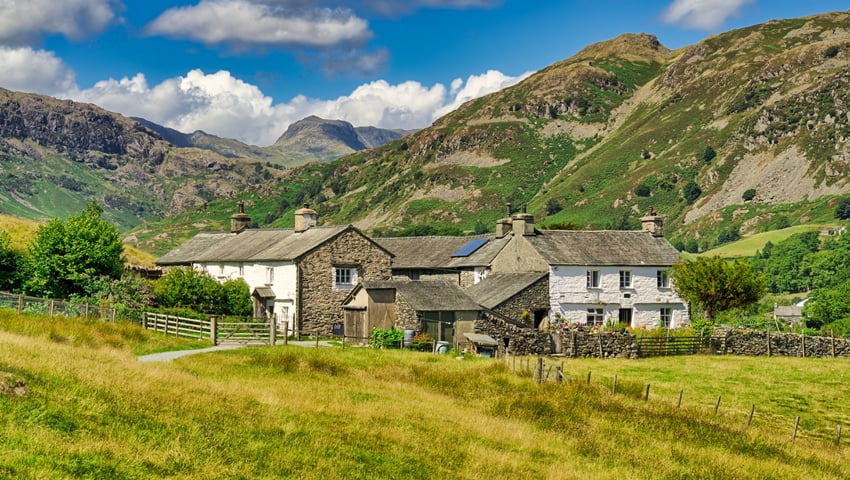At the Autumn Budget on 30 October 2024, the Chancellor announced that agricultural property relief (APR) and business property relief (BPR) will be changed.
Agricultural property relief (APR) is a type of inheritance tax relief. It reduces the amount of tax that farmers and landowners must pay when farmland is passed to the next generation.
Business property relief (BPR) is similar, but for business assets that are part of the estate.
What was announced in the Budget?
From 6 April 2026, the full 100 per cent relief from inheritance tax will be restricted to the first £1 million of combined agricultural and business property.
Above this amount, landowners will pay inheritance tax at a reduced rate of 20 per cent, rather than the standard 40 per cent.
This tax can be paid in instalments over 10 years interest free, rather than immediately, as with other types of inheritance tax.
This is on top of the other spousal exemptions and nil-rate bands that people can access for inheritance tax too.
This means that two people with farmland, depending on their circumstances, can pass on up to £3 million without paying any inheritance tax.
Example 1: a farm owned by two people
Two people who jointly own a farm will be able to pass on land and property valued up to £3 million to a child or grandchild tax free.
That is made up of £1 million, where they combine their standard £500,000 tax-free allowances (£325,000 for nil-rate band + £175,000 for residence nil-rate band), and on top of that, an additional £1 million tax-free allowance each for agricultural property inheritance.
Person 1: £325,000 + £175,000 + £1 million
Person 2: £325,000 + £175,000 + £1 million
Total passed on to direct descendant tax free: £3 million
This would be £2.65 million if leaving to anyone else that is not a direct descendant as would no longer be able to access the additional property tax-free allowance (£175,000 each).
Person 1: £325,000 + £1 million
Person 2: £325,000 + £1 million
Total passed on to non-direct descendant tax free: £2.65 million
Example 2: a farm owned by one person
One person who owns a farm will be able to pass on land and property valued up to £1.5 million tax free to a child or grandchild.
That is made up of their standard £500,000 tax-free allowance (£325,000 nil-rate band + £175,000 residence nil-rate band), and an additional £1 million tax-free allowance for agricultural property inheritance.
Total passed on to direct descendant tax free: £1.5 million (£325,000 + £175,000 + £1 million)
This would be £1.325 million tax free if leaving to anyone else that is not a direct descendant as would no longer be able to access the residence nil-rate band.
Total passed on to non-direct descendant tax free: £1.325 million (£325,000 + £1 million)
When will these changes start and who will be impacted?
The reforms will apply from 6 April 2026. Most estates will not be affected by the changes.
How does this impact other ways of passing on farmland?
Full exemptions for transfers between spouses and civil partners continue to apply. This means that any agricultural and business assets left to a spouse or civil partner will be tax free.
Following the death of a surviving spouse, an estate can pass on £1 million free of inheritance tax if they leave their residence to direct descendants. This includes children or grandchildren.
Any transfers to individuals more than seven years before death will continue to fall fully outside the scope of inheritance tax, and the rate tapers down from 3 years after the transfer (3 to 4 years – 16 per cent; 4 to 5 years – 12 per cent; 5 to 6 years – 8 per cent; 6 to 7 years – 4 per cent).
What other funding is available to farmers?
At the budget, the Chancellor also announced £5 billion to help farmers produce food over the next 2 years. Treasury says that this is the largest amount ever allocated for sustainable food production.
This is alongside £60 million for the Farming Recovery Fund which will help farmers recover from the impact of flooding.
The government is also investing £208 million in protecting the nation from outbreaks of serious diseases that threaten our farming industry, food security and human health.
